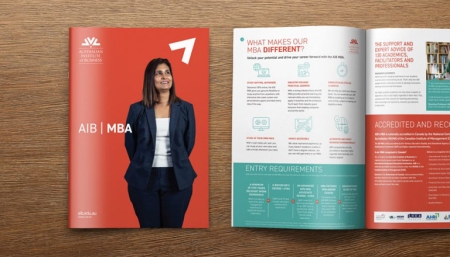What an Employee with an MBA Brings to the Table
Estimated reading time: 6 minutes

The Master of Business Administration (MBA) has a long-standing positive reputation across a range of industries, and rightly so – the degree equips current and future leaders with the necessary understanding and skills to drive high-level business strategy. That being said, organisations are increasingly analysing the value of the degree and how it might benefit the company’s own growth, sustainability and innovation.
The demand for MBA talent remains high, as nearly 9 out of 10 companies in the Asia Pacific region planned to hire MBA graduates in 2019, according to the Graduate Management Admission Council’s (GMAC) Corporate Recruiters Survey. The industries that showed the strongest commitment to hire MBA talent were:

- Energy and Utilities
- Health Care
- Consulting
- Technology
- Finance and Accounting
- Manufacturing
MBA graduates see the big picture
When we work for one organisation for some time, it’s not uncommon to lose sight of what else is happening in the business world. MBA students spend significant time analysing businesses, developing a broad understanding of what others are doing, what has worked, and what has not worked. As a result, they graduate with an up-to-date understanding of the business world and the complex issues associated with it. Through the process of analysing and solving these business issues, an MBA students’ ability to think strategically is challenged and refined. AIB MBA graduate Greg Goopy explained that his strategic outlook evolved in conjunction with his leadership qualities during the MBA. “My outlook on business became far more sophisticated and I started to understand a greater context of the markets that we operated in and the strategies of our competitors. As a result, I am able to lead the larger network of people within our function to get greater performance out of them,” he said.MBA graduates think long-term
Employers are seeking employees that will assist in the long-term growth and sustainability of their businesses. Thanks to the comprehensive and integrated nature of the course content, students develop an understanding of how each business function (or department) operates, and how company decisions can affect each function. An MBA’s holistic understanding of a company will mean that he or she can contribute to achieving a sustainable position in today’s changing business environment. For AIB MBA Graduate Jimmy Bangun, his employer saw the value of his MBA almost immediately after he had been exposed to the concepts. “Simply by applying the theory that I learnt in the MBA programme, I’ve helped my organisation expand overseas and double our fleet in the span of a year,” he said. Through the new knowledge acquired and confidence gained, MBAs can enhance the organisation’s progression, strategic direction, systems and management. Read more: Your Work Experience Will Supercharge Your MBAMBA graduates possess valuable leadership qualities
The practice of leadership and the development of leadership qualities is something that MBA students engage with all throughout their degree – from start to finish. Studying with AIB, Leadership is the very first subject that students undertake, and this helps to lay the foundation for developing an understanding of how leadership integrates into all the future subjects they will study. Studying online, students are quickly able to apply these learnings to real-world business situations in their work, helping them to make an impact with the MBA as they continue to study. Upon graduation, MBAs will have developed a holistic view of the business world, and as a result, they’ll be better equipped to lead through the broad lens of business, rather than just their department or area of expertise. This promotes a more cohesive, considered and collaborative workplace culture. Due to the challenging nature of the MBA, students will also develop greater self-discipline and problem-solving skills, their communication skills will greatly improve, and they’ll experience a boost in confidence. These are just some of the qualities and development outcomes MBA students gain, all of which help to make them better leaders.
MBA graduates have diverse and highly qualified business networks
We don’t completely agree with the phrase “it’s not what you know, it’s who you know” but we believe it’s a blend of both. MBAs undertake the programme with a cohort of other high-calibre students across a range of industries and roles. If they play their cards right and embrace networking opportunities, MBAs should graduate with a solid foundation of business contacts – both locally and overseas. This is of great value to any organisation, as the employee can call on their contacts for opportunities, deals and valuable insights when needed. It could be for an opinion on how to approach a certain issue, or it might be to do particular business with that contact. Regardless of the use, it is important to have contacts outside of your organisation in business for the benefit of the MBA graduate and their employer. Are you considering asking your employer to help fund your MBA? Check out our top 5 tips.- Articulate your future value with an MBA
- Get specific with the subjects you’ll be studying
- Choose an online MBA and explain to your employer how that will benefit them
- Know your company’s professional development policy
- Determine if you can claim your education expenses at tax time



